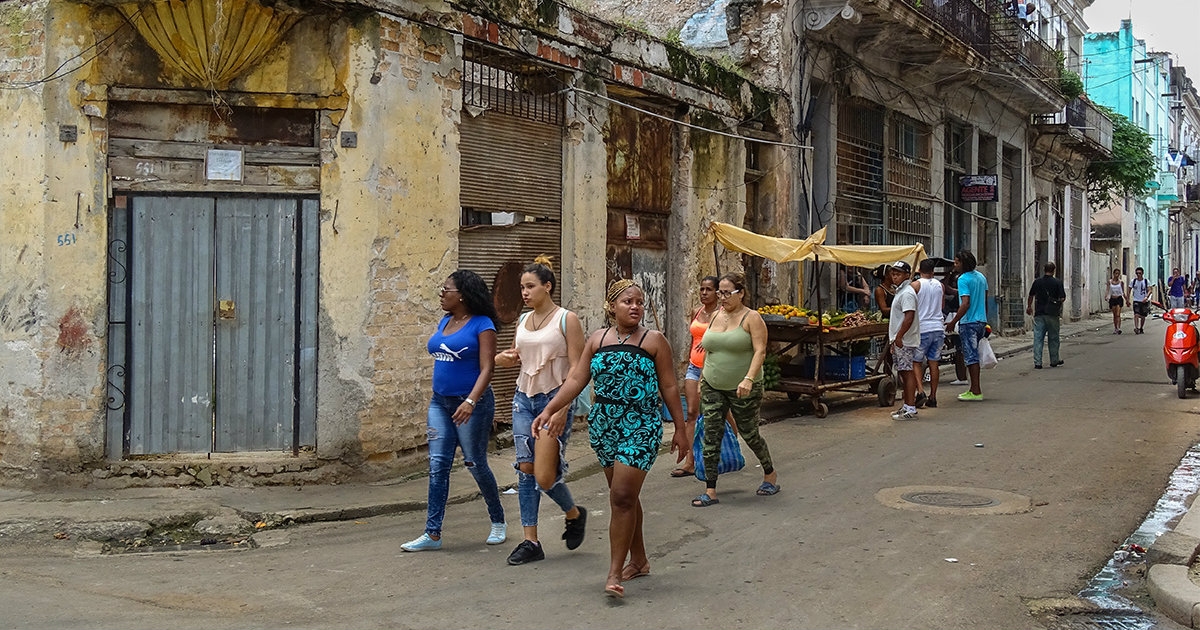Maritza’s story is not unique: the urgent need for a law against gender-based violence in Cuba
Eleven years of abuse and mistreatment came to a head all in one day. Maritza had been married to Osvaldo, a machista and an alcoholic, for eleven years. One afternoon […]

Eleven years of abuse and mistreatment came to a head all in one day. Maritza had been married to Osvaldo, a machista and an alcoholic, for eleven years. One afternoon in 1999, Osvaldo came home drunk, shouting at Maritza to prepare dinner for her family of nine.
“At that moment, I didn’t know what to do. I felt lost amidst all the shouting and insults. Even though it wasn’t the first time that he had shouted at me and called me a b****, I was at a loss. Suddenly in that moment, I was finished putting up with all the bad things that I had withstood for eleven years. I didn’t hesitate to talk back to him; I told him that he had been unfaithful and had never valued me for all those years,” remembers Maritza.
Osvaldo responded violently, punching her and pushing her to ground, then kicking her repeatedly.
“I was so broken in that moment that I got up from the floor, grabbed a knife and stabbed him four times. I was in shock. I didn’t know whether to help him or leave him there. Nobody in our house had come to help me when he mistreated me, but in that moment everyone came to help him,” she says.
Osvaldo was taken to the hospital for surgery, where he stayed for several weeks. Osvaldo’s family reported Maritza to the police, who arrested her shortly after. She was tried, found guilty of assaulting Osvaldo and sentenced to six years in prison. The violence that Osvaldo inflicted upon her during their marriage was never discussed in her trial.
“It was as if all the evidence pointed to my being guilty of stabbing him, and I know that I am responsible for doing that and that things didn’t have to get to that point, but when you suffer so much abuse for so many years, there comes a point when you’re sick and tired and you do whatever comes into your mind,” remembers Maritza. “I wasn’t going to continue putting up wth any more abuse.”
While she was imprisoned, her children lived with Maritza’s mother. Osvaldo never sought custody of the children. After four years in prison, Maritza was released for good behavior.
In prison, Maritza got to know many women with similar stories of suffering abuse. She met with them secretly to talk about their lives and listen to their stories.
“What happened to me was a real injustice. The court never considered the fact that I had been abused, beaten and raped because I had never made a formal report,” says Maritza.
Any time that she had thought about filing a report against Osvaldo, Maritza remembered what she had always heard about Cuban authorities’ lack of concern for such cases: “In Cuba, it almost always happens: if you go to the police about domestic abuse, they will say, ‘we don’t get involved between a husband and wife.’”
Maritza’s experiences have given her clarity: “we live in a country governed by men, and everything is run by men. The important positions are held by men and they are keeping us women down.”
Cubans call for a law
Cuba does not have a law addressing gender-based violence or violence against women, but a group of women activists has recently drafted and proposed such a measure. They submitted their draft to the National Assembly last November.
On January 10th of this year, the activists met with members of the National Assembly to inform them about gender inequalities in Cuba and the need for a law. The draft bill specifies new criminal offenses in order to guarantee access to justice for victims of gender-based violence, but mainly proposes a comprehensive plan to prevent such violence, assist victims and educate Cubans about the isssue.
The activists also proposed a timeline to approve this law, but no such law has been placed on the legislative calendar for the current session of the National Assembly (2020-2028).
International attention to violence against women in Cuba
In its final observations from its most recent review of Cuba, the UN Committee on the Elimination of Discrimination Against Women (CEDAW) called upon the Cuban State to prioritize the fight to eliminate violence against women. The Committee also urged Cuba to prepare a national strategy for preventing violence against women, addressing victims’ needs and bringing perpetrators to justice. Cuba has not yet drawn up such a plan.
The Committee called attention to the particular vulnerability of Afro-Cuban women, rural women, elderly women and disabled women. The final observations urgedg the government to take the necessary measures to improve these groups’ access to basic needs such as sanitation, ensure that they are covered by social protection programs and promote their participation in public life.
The Federation of Cuban Women, a state-linked organization, has plans in place to defend women’s rights on the island. However, the Federation is responsive to the interests of the government above all, and without the involvement of independent civil society, its actions are misinformed and disconnected from the reality of Cuban women’s lives.

